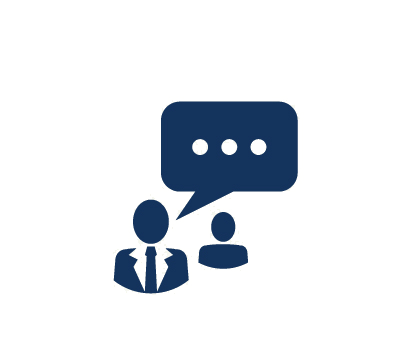Duration: 5 Days
Learn about the C# program structure, language syntax, and implementation details with .NET Framework 4.0 in this five-day course. You will discover the new enhancements in the C# 4.0 language by using Visual Studio 2010.
After an introduction to C# and the .Net framework, you'll learn how to use C# programming constructs, how to read and write files, how to encapsulate data, and how to use LINQ to query data. Fourteen Proven Impact exclusive hands-on labs help you put theory into practice and better prepare you for when you return to your job.
Proven Impact Exclusive!
Continue developing your skills after class with 24/7 access to our live remote labs for six months, providing you with valuable extra time for hands-on practice.
What You Will Learn
- Developing C# applications for the Microsoft .NET Framework 4.0
- Structure of C# 4.0 programs, language syntax, and implementation details
- Using C# programming constructs
- Declaring and calling methods
- Handling exceptions
- Reading and writing files
- Creating new types
- Encapsulating data
- Inheriting from classes and implementing interfaces
- Managing the lifetime of objects and controlling resources
- Defining overload operators
- Decoupling methods
- Using collections and building generic types
- Using LINQ to query data
- Integrating Visual C# Code with Dynamic Languages and COM Components
Audience
Experienced developers who have programming experience in C, C++, Visual Basic, or Java and understand the concepts of object-oriented programming
Prerequistes
- At least 12 months' experience working with an object-oriented language
- C++ or Java knowledge, including:
- Creating classes
- Inheritance and abstraction
- Polymorphism
- Interfaces
- Exceptions
- Knowledge of the Visual Studio IDE
Course Outline
1. C# and the .NET Framework
- Introduction to the .NET Framework
- Creating Projects within Visual Studio 2010
- Writing a C# Application
- Building a Graphical Application
- Documenting an Application
- Running and Debugging Applications by Using Visual Studio 2010
2. Using C# Programming Constructs
- Declaring Variables and Assigning Values
- Using Expressions and Operators
- Creating and Using Arrays
- Using Decision Statements
- Using Iteration Statements
3. Declaring and Calling Methods
- Defining and Invoking Methods
- Specifying Optional Parameters and Output Parameters
4. Exceptions
- Handling Exceptions
- Raising Exceptions
5. Reading and Writing Files
- Accessing the File System
- Reading and Writing Files by Using Streams
6. Creating New Types
- Creating and Using Enumerations
- Creating and Using Classes
- Creating and Using Structs
- Comparing References to Values
7. Encapsulating Data and Methods
- Controlling Visibility of Type Members
- Sharing Methods and Data
8. Inheriting from Classes and Implementing Interfaces
- Using Inheritance to Define New Reference Types
- Defining and Implementing Interfaces
- Defining Abstract Classes
9. Managing the Lifetime of Objects and Controlling Resources
- Introduction to Garbage Collection
- Managing Resources
10. Encapsulating Data and Defining Overloaded Operators
- Creating and Using Properties
- Creating and Using Indexers
- Overloading Operators
11. Decoupling Methods and Handling Events
- Declaring and Using Delegates
- Using Lambda Expressions
- Handling Events
12. Using Collections and Building Generic Types
- Using Collections
- Creating and Using Generic Types
- Defining Generic Interfaces and Understanding Variance
- Using Generic Methods and Delegates
13. Building and Enumerating Custom Collection Classes
- Implementing a Custom Collection Class
- Adding an Enumerator to a Custom Collection Class
14. Using LINQ to Query Data
- Using the LINQ Extension Methods and Query Operators
- Building Dynamic LINQ Queries and Expressions
15. Integrating Visual C# Code with Dynamic Languages and COM Components
- Integrating C# Code with Ruby and Python
- Accessing COM Components from C#
Course Labs
Lab 1: Exclusive - Introducing C# and the .NET Framework
Lab 2: Exclusive - Using Language Programming Constructs
Lab 3: Exclusive - Declaring and Calling Methods
Lab 4: Exclusive - Handling Exceptions
Lab 5: Exclusive - Reading and Writing Files
Lab 6: Exclusive - Creating New Types
Lab 7: Exclusive - Encapsulating Data and Methods
Lab 8: Exclusive - Inheriting from Classes and Implementing Interfaces
Lab 9: Exclusive - Managing the Lifetime of Objects and Controlling Resources
Lab 10: Exclusive - Encapsulating Data and Overloading Operators
Lab 11: Exclusive - Decoupling Methods and Handling Events
Lab 12: Exclusive - Using Collections and Building Generic Types
Lab 13: Exclusive - Building and Enumerating Custom Collection Classes
Lab 14: Exclusive - Querying Data with LINQ


